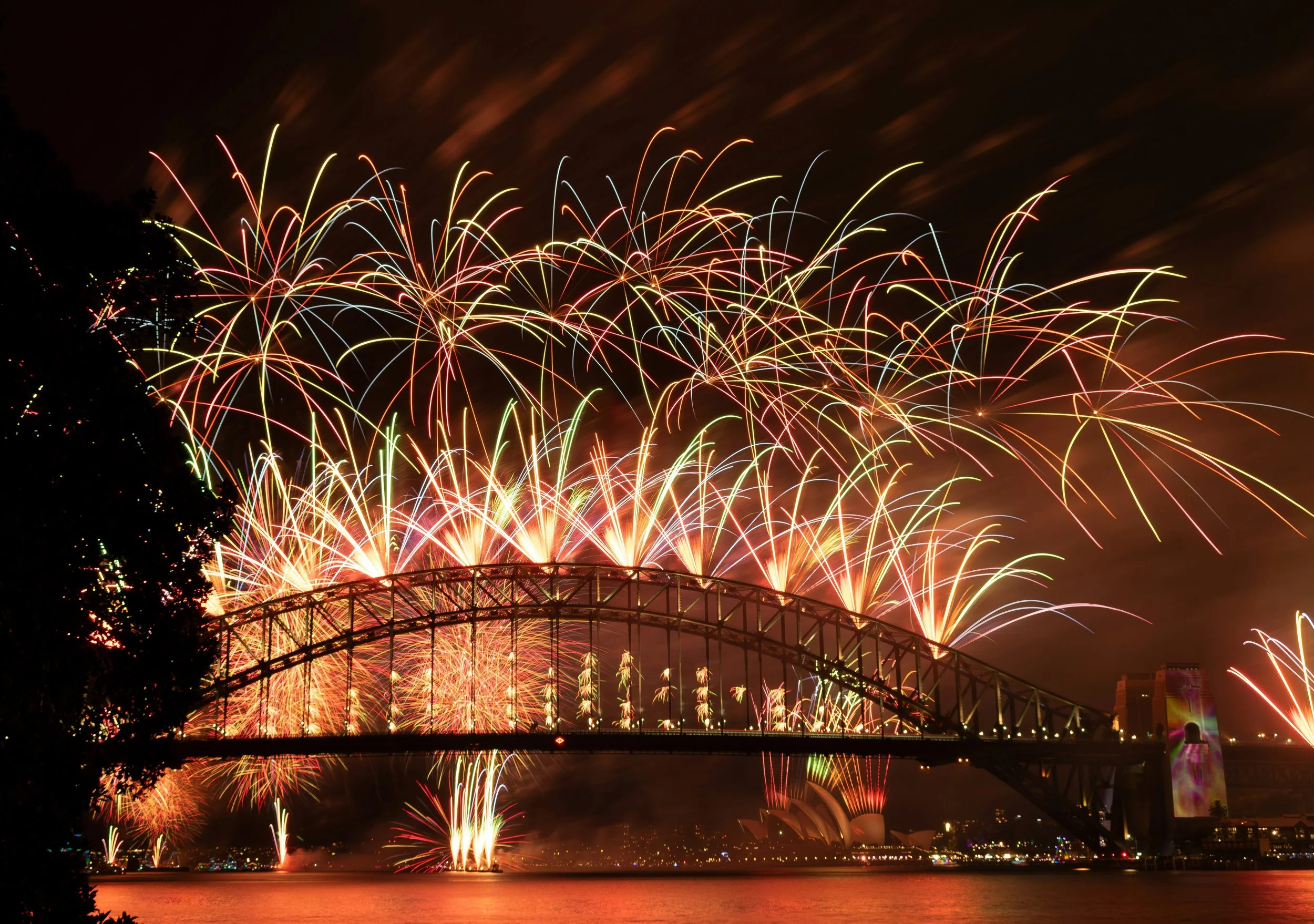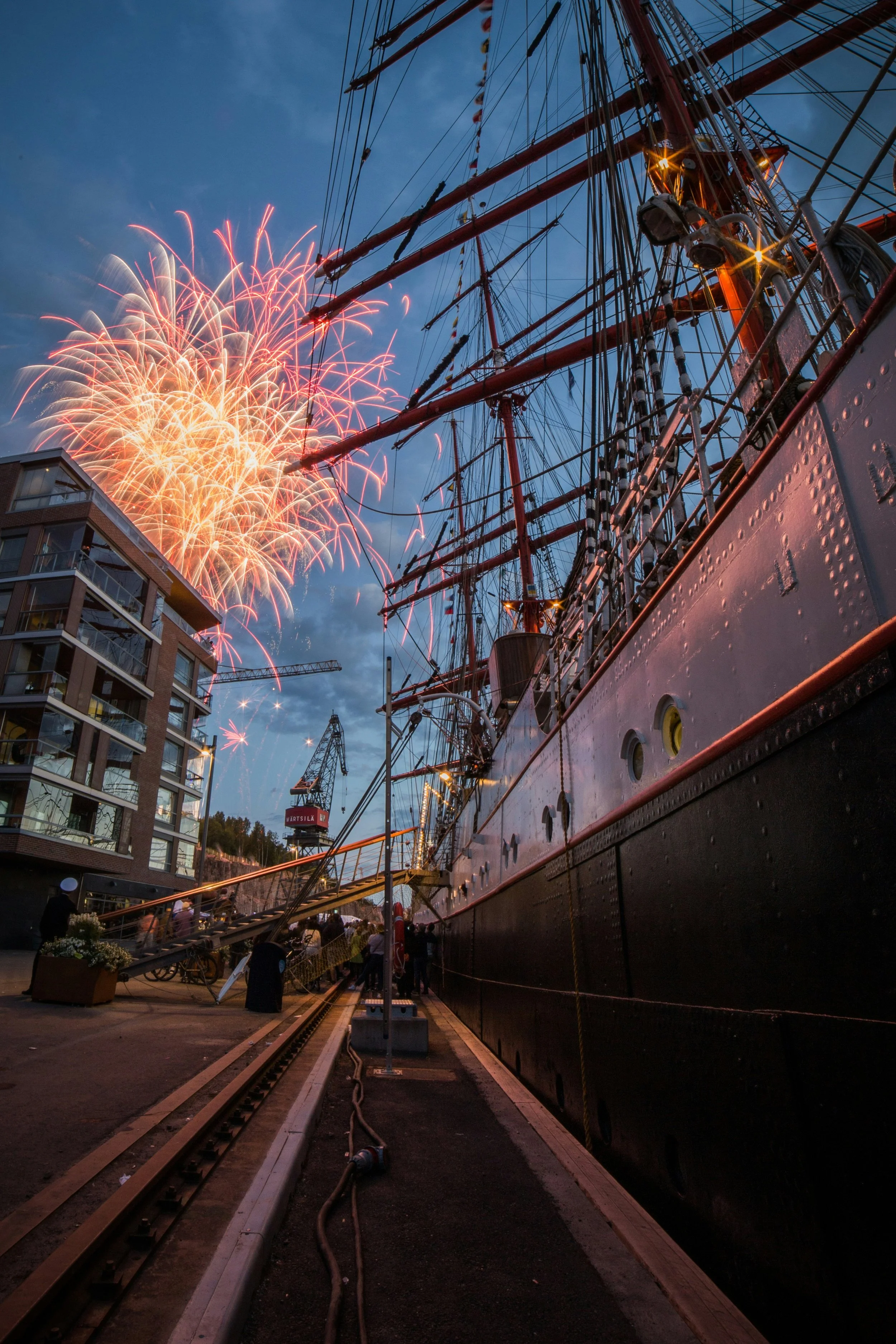Firework laws around the world…
Before the Fireworks & Pyrotechnic Articles (Scotland) Act 2022 came into being, the Scottish Government looked at fireworks restrictions imposed by other countries around the world and their impact. Although no evidence has been collected as to the benefits experienced by local animal life, below is a summary of the trends identified in numbers of firework-related incidents and injuries, according to the collected evidence available:
Australia 🇦🇺
With the exceptions of the Northern Territory and Tasmania, public use of fireworks is banned in all states and territories. Only trained, licensed pyrotechnicians are permitted to possess and use fireworks.
Sydney Harbour Bridge
Consumer fireworks (also known as category F2) were banned in Western Australia in 1967, Queensland in 1972, Victoria in 1985, New South Wales in 1987, South Australia in 2001 and the Australian Capital Territory (ACT) in 2009.
The number of firework-related offences reported to or becoming known to the police in the Australian Capital Territory (ACT) has, as you would expect, been markedly lower following the ban in 2009. Before it passed, there were an average of 19 incidents reported every year. Now the average is fewer than 3.
Finland 🇫🇮
In 2010 a set of measures was introduced to curb the problem of firework-related injuries - specifically eye injuries. These mandated that:
all firework users wear safety glasses,
no consumer fireworks be bought by or given to under 18 year olds,
local rescue authorities be notified about the use of fireworks at least five days before the event - which they can prohibit or restrict if they see fit.
Turku, Finland
The only exception to the last measure is from 6pm on 31st December until 2am on 1st January, when no prior notice is required. Evidence indicates that following the enactment of these restrictions, there was a significant decline in the number of firework users and bystanders sustaining firework-related injury.
On top of these, some municipalities have banned the use of fireworks within city centres and others have banned them altogether.
Germany 🇩🇪
It has been the case in Germany since 1986 that consumer (F2) fireworks can only be sold on the last 3 days of the year to those aged 18 or over. And since 1977, fireworks can only legally be lit on 31st December and 1st January, and never in the immediate vicinity of churches, hospitals, children’s homes or old people’s homes.
Cities and municipalities also have authority to impose tighter restrictions on sale and use of fireworks. Berlin, Munich and Hamburg have enforced some firework free zones (similar to the now enacted Scottish Firework Control Zones) on New Year’s Eve and New Year’s Day. Anecdotally, city authorities have reflected positively on their implementation - with members of the public either handing in their fireworks at checkpoints to the zones or being refused entry.
Display fireworks, also known as category F3 fireworks (perfectly legal to buy and use as a member of the public in the UK) can only be imported and used by licensed professionals.
In 2019, a YouGov poll indicated 57% of Germans were in favour of banning public use.
Netherlands 🇳🇱
Since 2015, consumer fireworks can only be purchased by members of the Dutch public aged 16 or over from licensed retailers between 29th and 31st December (and not on Sundays). They can only be used during an 8 hour period between 6pm on 31st December and 2am on 1st January (previously a 16 hour period). Since then, the number of reported firework-related injuries around New Year’s has been consistently lower.
Groningen, Netherlands
Since 2019, fireworks must be sold with safety googles, ignition fuses and user manuals.
In 2020, sale of display (F3) fireworks was banned.
Since then a total of 16 municipalities including Amsterdam and Rotterdam have implemented their own local firework bans, with more being added to this list every year. This makes it illegal for the public to buy and set off fireworks in those areas, but still allowing for public displays. Other towns including The Hague and Maastricht have enforced firework-free zones in particular areas such as around zoos, nursing homes and hospitals.
Northern Ireland
In order for a member of the public to buy, possess or use F2 (consumer) or F3 (display) fireworks, they must have a valid fireworks licence issued by the Northern Irish Department of Justice. The fee for a licence depends on the number of attendees expected. Anyone selling fireworks must also be licensed.
Since the licensing system came into force in 2002, there was a sharp and immediate fall in the number of people sustaining injuries caused by fireworks, down from 136 in 2001 to 38 in 2002 (72% decrease).
Republic of Ireland 🇮🇪
F1 fireworks (sparklers, party poppers, Christmas crackers etc.) can be bought and used by anyone aged 12 and over in Ireland.
Any other form of firework can only be purchased and used by licensed pyrotechnicians for public displays.
The number of firework-related hospital discharges declined year on year since these regulations came into effect.
Tralee, Republic of Ireland
The information above is distilled from a paper assembled in 2020, which can be viewed in full along with its sources here, by the Firework Review Group to assist the Scottish Government in considering its legislative options ahead of the eventual Firework & Pyrotechnic Articles (Scotland) Act. This legislation, enacted in 2022, introduced the following main provisions:
Fireworks can only be let off between 6pm and 11pm on any given day of the year. Except for Bonfire Night, when it’s extended to midnight; and Diwali, Hogmanay and Lunar New Year, when it’s extended to 1am.
Fireworks cannot be sold or given to people younger than 18 years old.
Local councils can upon public consultation designate their own Firework Control Zones (came into effect in June 2023).
Consumer (F2) and display (F3) fireworks can only be purchased by people holding a firework licence (estimated to come into effect early 2025).
UK Government restrictions for England and Wales (Fireworks Regulation 2004) also include the first two bullet points above, but still allow for anybody to buy category F2 or F3 fireworks, and make no provision for control zones.
There is still a distinct lack of appreciation on the part of, in particular, the UK Government of just how damaging and life-destroying fireworks can be. Read more about our campaign for proper firework restrictions, like those in the other countries listed above, and how you can help by clicking below.




